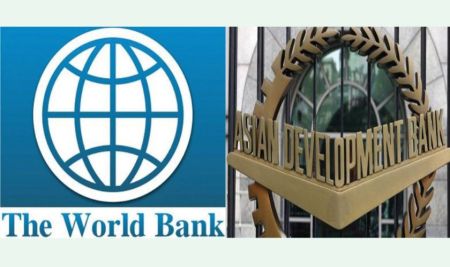 By Dr Rabindra Karna
By Dr Rabindra Karna Human Resources function in addition to its routines regardless of the size of business operation is also expected to demonstrate competitive intelligence and benchmark comparatives at least with direct market competition. This is done for depicting HR initiatives towards sales and people productivity enhancement that can be utilised as a comprehensive tool to improve their own effective engagement into the business. It is imminent to identify and realise strengths and opportunities for improvements around specific HR areas.
Businesses are currently moving under heavily regulated and turmoil employee environment dealing with most uncertain industrial relation under complex legislative framework. Human Resources function has been emerging as most essential organ of organisation which is mainly engaged in establishing and practising policies, legal compliance that has huge impact over productivity and profitability of business in total. This is why Human Resources function these days is considered as most valuable strategic business partner within the Organisation. Efficient, effective and active HR practices in any organisation are as essential as the well functioning organs in human body. Investment in building Human Asset is considered a key to the measurement of systematic alignment with organisational goals helping HR become strong strategic partner that it is deemed to be. The HR Audit can be a powerful element driving change in HR and organisation.
The financial audit is mandatory which examines the past on the basis of practices and procedures for identifying issues that ensure compliance to sound accounting principles. Similarly, HR audit is aimed to future and meant to examine the health of Human Resources function to establish best practices that are productive to the business activities. HR Audit supports companies to determine gap and reason behind lack in system productivity and suggests the way forward. Currently, most of the businesses have plans for systems, targets and compliance that are driven by HR functions wherein HR audit becomes useful to compare these plans with actual implementations. The outcome of audit and feedback is found very helpful in decision making around corrective measures pertaining to improvement plans. Human resources audits play vital role around legal compliance that helps to avoid regulatory liabilities resulting from policies and practices. It also helps to identify legal risk and serves information about efficiency of HR strategies through benchmarking “best practices†of similar businesses. It is also handy in finding solutions to problems prior to escalation. It also suggests how things might be done in more efficient and effective way with efficient cost economy.
Concerns in relation to employee risks have been the reason for the emergence of a wing within HR function to look after the working conditions and associated risks that enable implementation of preventive measures that perfectly aligns to the legal approach of HR. The application of Occupational Health & Safety program is now associated with quality of life at workplace that is most important for human capital being the prime strategic element that explains the differentiation ability of company. This is where HR audit goes beyond the traditional concept of accounts audit i.e. simple investigation to logical measurement of efforts being put.
HR audit in general is suggested to structure based upon size of organization i.e. number of people employed, time constraints, budgets and risk areas e.g. discipline, performance, compliance, hiring etc. However, there are some areas wherein companies are vulnerable to additional risks which must be reviewed carefully:
a. Personal record: A detailed and accurate personal records of employees are essential to prevent the business from undesired dispute especially in the areas of insufficient documentation pertaining to discipline, service record, compensation, health issues etc. An audit of personnel files reveals exposure to this type of risk and enables preventive measures to safeguard interest of the company beforehand.
b. Legal Compliance: A review focusing over company’s compliance to the local laws and regulation at the same time incorporated codes of best practices and other essentials; allows company to take corrective measure in area of concerns e.g. over-time eligibility, classification of Job, payroll, records retention, compensation and benefits etc.
c. Attendance System: The biggest concern for most of the employer as of today is absenteeism. In many cases it has been noticed that companies have their own attendance policies (In addition to the country’s Labor Law) in support of absenteeism control which might be unacceptable because of conflict with law of the land as well lack of clarity in need of proper communication around these. Since this aspect has immediate vulnerability to dispute and risks; audit prescribes the remedial action in such conflicting situation and enables the organisation to take corrective measure in support of absenteeism control i.e. fully aligned with law of the land.
d. HR Strategies: Strategic alignments among each business units (Functions) are equally important in view of increasing value of employees to the business. This part of HR management mainly consists of organization structure, job design, employment policies, HRIS and employee relations management etc. Audit review of strategies helps business to determine whether strategic alignment exists there or not and supports planning and action to improvise areas of concerns on this important aspect.
e. Cost Efficiency: One of the important financial roles of HR is to ensure people management in the most cost-effective way. This inculcates financial ratios and scorecard measures such as headcount planning, orientation and disciplinary cost per employee, people development cost, people productivity etc. A detailed review of this aspect of HR throws light on equipping HR practitioners of the company with knowledge per formulation of HR metrics.
Thus HR audit is meant for verification of job design and analysis, employee welfare, industrial relations, conflict resolution, improved communication mechanism, orientation and job evaluation etc useful and supportive to achieve business destination through effective engagement of HR Function as one of the key business performance driver. It has been noticed from recent HR developments that there is an increasing demand for HR associates to contribute to profitability drive of the organisation through active participation in business decisions. The audit findings can be of great use to improve HR business plan, identify risks and control over traditional approaches, cost-economy and facilitate change in management initiatives. It also plays an important role in relation to motivation through clarified roles and responsibilities. HR audit helps to identify HR KPIs (Key Performance Indicators) and adds value to the organisation defining relevant activities. It also supports placement of management in a better position fulfilling expectation that instills trust and respect from all stakeholders.
Hence, it is important to ensure that HR audit is planned and carried out under clear understanding of HR connectivity on overall business objectives, HR related opportunities and their engagement around sustainable people productivity and outcomes that are intended to achieve.
(Dr Karna is the Executive Chairman of MARK Business Solutions Pvt Ltd and Ad Abhyas Marketing & Communications Pvt Ltd. The article is based on various research reports and his practical experiences as management practitioner.)






















